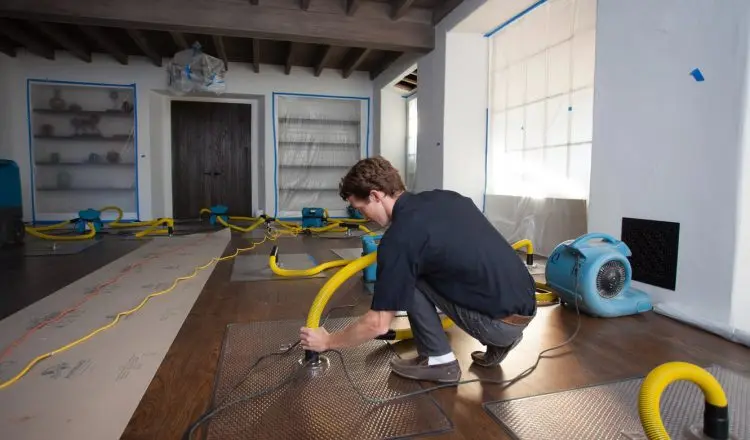Choosing the best water filter for your home is crucial to ensuring that you and your family have access to clean, safe, and great-tasting water. With so many different water filtration systems available, it can be overwhelming to make the right decision. Here are some key factors to consider when selecting the ideal water filter for your needs:
1. Understand the Quality of Your Water
The first step in choosing a water filter is understanding the quality of your water supply. Different filters target different contaminants, so knowing what’s in your water will help narrow down your options. You can obtain a water quality report from your local water utility or have your water tested. Key contaminants to look for include:
Chlorine: Often used in municipal water systems, chlorine can affect taste and smell.
Lead: Found in older plumbing, lead can be harmful, especially to children.
Pesticides and Herbicides: These chemicals can contaminate water sources, especially in rural areas.
Sediment: Sand, dirt, and other particles can affect water clarity and taste.
Bacteria and Viruses: These microorganisms can cause health issues if present in untreated water.
Knowing which contaminants are present in your water will guide you to the right filtration technology.
2. Determine the Type of Filtration System
Once you understand your water's quality, the next step is choosing the right type of filtration system. There are several types, each with its strengths and weaknesses:
Activated Carbon Filters: These filters are effective at removing chlorine, pesticides, and bad tastes. They are commonly used in pitchers, faucet-mounted filters, and under-sink systems.
Reverse Osmosis (RO) Systems: These systems remove a wide range of contaminants, including heavy metals, salts, and dissolved solids. They are ideal for households with significant water quality issues but tend to waste water and remove beneficial minerals.
UV Filters: Ultraviolet filtration is excellent for killing bacteria, viruses, and other pathogens. However, it doesn’t remove sediments or heavy metals.
Ion Exchange Filters: Commonly used in water softeners, these filters reduce water hardness by removing calcium and magnesium, which can lead to scale buildup.
Ceramic Filters: These filters are good for removing larger contaminants like sediments and some bacteria but are less effective against chemicals or viruses.
3. Consider Your Water Usage
Another important factor is how much water your household consumes. For smaller households, a pitcher or faucet-mounted filter might be enough, while larger households may benefit from a whole-house filtration system or under-sink system.
Pitcher Filters: Convenient for small spaces and low water usage. They are best for people who only need filtered water for drinking and cooking.
Under-Sink Systems: These systems provide filtered water directly from the tap. They are ideal for families with higher water usage and those who want a more permanent solution.
Whole-House Filters: These systems treat all the water entering your home, ensuring clean water for bathing, cleaning, and drinking. They are best for larger households or those with water quality issues affecting the entire water supply.
4. Check the Filter’s Certification
When choosing a water filter, look for certification from trusted organizations, such as NSF International or the Water Quality Association (WQA). Certification ensures that the filter has been tested and meets specific performance standards.
Common certifications to look for include:
NSF/ANSI 53: Ensures the filter reduces harmful contaminants like lead and volatile organic compounds (VOCs).
NSF/ANSI 42: Indicates the filter improves taste and odor by reducing chlorine and other chemicals.
NSF/ANSI 58: Certifies reverse osmosis systems for their ability to reduce dissolved solids and contaminants.
5. Maintenance and Filter Replacement
Most water filters require periodic maintenance and filter replacement. Be sure to choose a filter system that fits your lifestyle and maintenance preferences. Consider the following:
Filter Lifespan: Some filters need to be replaced every few months, while others may last up to a year or more. Consider how often you are willing to change the filters.
Ease of Maintenance: Some filtration systems require professional installation or complex maintenance routines. Make sure you select a system that suits your ability to maintain it.
Filter Cost: Over time, the cost of replacing filters can add up. Check the price of replacement filters before making a decision.
6. Taste and Smell Considerations
Water taste and smell can be major factors in choosing a filter. If you find your water tastes or smells unpleasant due to chlorine, sediment, or other chemicals, activated carbon filters are highly effective at improving taste and odor. Reverse osmosis systems also provide exceptionally clean water, though they may not significantly improve taste compared to activated carbon.
7. Budget
Water filters come in a wide range of prices, from affordable pitcher filters to more expensive reverse osmosis systems. When determining your budget, keep in mind both the upfront cost of the system and the ongoing cost of replacement filters. A higher-end system may be more expensive initially, but it may offer better long-term value due to its efficiency and the lower frequency of filter changes.
8. Environmental Impact
If environmental sustainability is important to you, consider a filter system that reduces plastic waste. Filters like reverse osmosis and activated carbon can be more sustainable, as they typically use reusable filter cartridges. Also, some pitcher filters are made of environmentally friendly materials.
Conclusion
Choosing the best water filter for your home requires evaluating several factors, including the quality of your water, the types of contaminants you need to address, your household’s water usage, and your budget. By understanding your needs and considering the different filtration technologies available, you can make an informed decision that ensures you and your family have access to clean, safe drinking water. Investing in a high-quality water filter will not only improve your health but also enhance the overall quality of life in your home.






